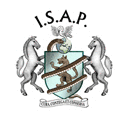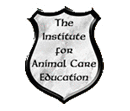
This programme is aimed at the more advanced student who needs an understanding of aggressive behaviour in dogs for professional reasons, what causes it, how to recognise the warning signs and finally handle it.
Course Modules
1. Defining Aggression
- Introduction to canine aggression
- Defining aggression in human terms
- Social communication
- Can aggression be thought of as a natural and/or beneficial behaviour?
- Selective breeding and its influence on behaviour
- Nature / Nurture Debate
- Group dynamics
- Social behaviour
- The dog's expressive body language
- The need for understanding body language
- Stress levels contributing to aggression
- Calming signals and displacement behaviour
- Are there any circumstances where aggression is appropriate
2. Recognising Aggression
- Reading canine language
- The canine eye in connection with the dog's emotional state
- The canine ear used in communication
- Mouth and head positions used in communication
- Body positions and body posture
- Mounting behaviour
- Tail position and use in social communication
- Fear aggression
- Possessive aggression
- Maternal aggression
- Territorial aggression
- Re - directed aggression
- Genetic aggression
- Consequential aggression
- Sex related aggression
- Predatory aggression
- Defensive aggression
- Idiopathic aggression
- Senile aggression
- Diet and aggression
3. Development of Aggression
- Natural behaviour of breeds
- Before choosing a dog
- Working dogs
- Importance of recall when exercising a dog
- Different types of toys for dogs
- Games and play between humans and dogs
- Inter - dog contact
- Breed related problems
- Juvenile to adult development
- Lack of interpretation between dogs
- Learned behaviour
- Physiological condition
- Neutering for both males and females?
- Diet and feeding schedules
- Socialisation and the development of the dog
- Owner influence on aggression due to lack of structure
- Leaving the dog unattended
- The use of aversive training aids
- Anthropomorphism
4. Handling Aggression
- Dealing with aggression
- Learning theory
- Operant conditioning
- Positive and negative reinforcement
- Positive and negative punishment
- One trial learning
- Generalisation with behaviour to different surroundings
- Initial measures
- When should training begin?
- Desensitisation and Counter Conditioning
- Techniques
- Flooding
- Aversive conditioning
- Learned helplessness
- Over learning
- Holistic approaches to behaviour modification
- Euthanasia
- Legal Issues and the Dangerous Dogs Act
Study Level 3
- The study Level relates to the how demanding the course is. 1 is beginner and 5 is HND / Foundation Degree level.
- 4 Module Course
- This course is delivered in 4 study modules which need to be passed to gain the qualification.
All Compass Education Ltd courses are written by industry experts and provided exclusively in the UK by Compass, they are not available anywhere else. Courses are unique to Compass and accredited by Ofqual regulated Awarding Bodies and/or Industry Professional Bodies as indicated in each course description. In common with the overwhelming majority of private educational provision in this sector they are not a part of the RQF or SCQF and they do not appear on Ofqual's register of qualifications.
Reviews
No reviews were found.



